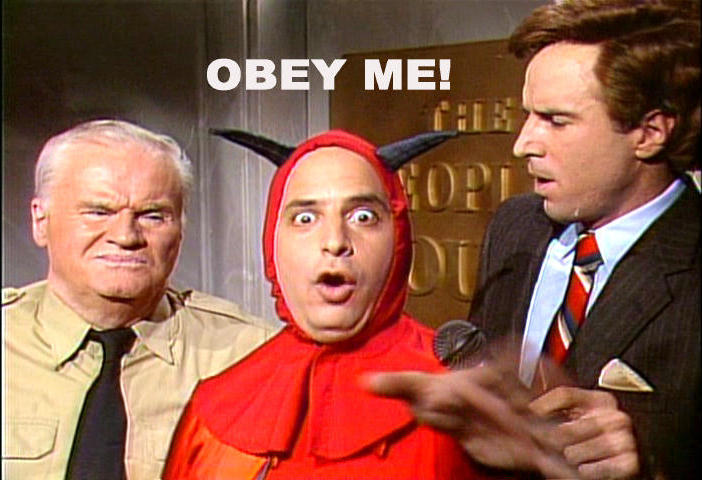Posted on 02/14/2015 1:16:14 PM PST by RnMomof7
"Historically, Catholics have argued that the papacy was a divinely-given institution papacy (Matt 16:17-19) etc., and they have relied on the notion that there have been bishops of Rome extending all the way back to the time of Peter.
This notion of bishops extending all the way back was thought to be actual history. In fact, as Shotwell and Loomis pointed out, in the General Introduction to their 1927 work "The See of Peter":
With reference to the Petrine doctrine, however, the Catholic attitude is much more than a "pre-disposition to believe." That doctrine is the fundamental basis of the whole papal structure. It may be summed up in three main claims. They are: first, that Peter was appointed by Christ to be his chief representative and successor and the head of his Church; second, that Peter went to Rome and founded the bishopric there; third, that his successors succeeded to his prerogatives and to all the authority thereby implied. In dealing with these claims we are passing along the border line between history and dogmatic theology. The primacy of Peter and his appointment by Christ to succeed Him as head of the Church are accepted by the Catholic Church as the indubitable word of inspired Gospel, in its only possible meaning. That Peter went to Rome and founded there his See, is just as definitely what is termed in Catholic theology as a dogmatic fact. This has been defined by an eminent Catholic theologian as "historical fact so intimately connected with some great Catholic truths that it would e believed even if time and accident had destroyed all the original evidence therefore. (xxiii-xxiv, emphasis in original).So, if the history of the early papacy is disrupted, it should, by all rights, disrupt the dogmatic definition of the papacy. And this is what we have come upon in our era: the most widely accepted historical accounts of the period -- which are now almost universally accepted among legitimate historians of the era -- is that Peter did not "found a bishopric." There was no "bishopric" in that city for 100 years after his death. The history completely contradicts what the "dogmatic fact" has held for more than 1000 years. Now, according to Eamon Duffy, among others, what was thought to be historical accounts were actually fictitious accounts that became passed along as history:
These stories were to be accepted as sober history by some of the greatest minds of the early Church -- Origen, Ambrose, Augustine. But they are pious romance, not history, and the fact is that we have no reliable accounts either of Peter's later life or the manner or place of his death. Neither Peter nor Paul founded the Church at Rome, for there were Christians in the city before either of the Apostles set foot there. Nor can we assume, as Irenaeus did, that the Apostles established there a succession of bishops to carry on their work in the city, for all the indications are that there was no single bishop at Rome for almost a century after the deaths of the Apostles. In fact, wherever we turn, the solid outlines of the Petrine succession at Rome seem to blur and dissolve. (Duffy, pg 2.)Briefly, on Peter and "the tradition," Reymond talks about the further lack of information about Peter in Scripture:
The Peter died in Rome, as ancient tradition has it, is a distinct possibility (see 1 Peter 5:13, where "Babylon" has been rather uniformly understood by commentators as a metaphor for Rome), but that he ever actually pastored the church there is surely a fiction, seven some scholars in the Roman communion will acknowledge. Jerome's Latin translation of Eusebius (not Eusebius's Greek copy) records that Peter ministered in Rome for twenty-five years, but if Philip Schaff (as well as many other church historians) is to believed, this is "a colossal chronological mistake." Paul write his letter to the church in Rome in early A.D. 57, but he did not address the letter to Peter or refer to him as its pastor. And in the last chapter he extended greetings to twenty-eight friends in Rome but made no mention of Peter, which would have been a major oversight, indeed, an affront, if in fact Peter was "ruling" the Roman church at that time. Then later when Paul was himself in Rome, from which city he wrote both his four prison letters during his first imprisonment in A.D. 60-62 when he "was welcoming all who came to him" (Acts 28:30), and his last pastoral letter during his second imprisonment around A.D. 64, in which letters he extend greetings to his letters' recipients from ten specific people in Rome, again he made no mention of Peter being there. Here is a period of time spanning around seven years (a.d. 57-64) during which time Paul related himself to the Roman church both as correspondent and as resident, but he said not a word to suggest that Peter was in Rome. (Reymond, "Systematic Theology," pg 814)
It has been suggested that Acts is a "selective" history, a fragmentary history, which simply did not include the facts pertaining to the last days and martyrdom of Peter and Paul. This is not acceptable, for such information would have been of great moment in the early church, which a century and a half before the rise of the cult of martyrs, only thirty-two years after the death of the apostles, remembered their martyrdom vividly (1 Clement 5). [But] the Early Church was so eager for details that within another century it created the full accounts which are found in the apocryphal Acts. (O'Connor, 11).In my next post, I'll provide a catalog of some of these.
HMMMmmm...
There are people who have their own idea of what Jesus's mother SHOULD be and won't accept her as she is described in Scripture.
I don't know whether to be amused or bemused by the dearth of any real attempts by FRoman Catholics to discuss the topics of these recent threads. It seems the majority that do participate at all only offer snark, insults and assertions of things they never seem able to prove with any real, unbiased facts.
We get bombarded with accusations of hatred and nefarious motives just for posting articles that explain why non-Catholic Christians believe as we do and invite others to explain why they may believe differently. The perpetually offended and persecuted minority never seems to recognize their opportunities to educate others about their beliefs and, instead, only complain that anyone has the right to post such things at all. It's almost like they think the Free Republic Religion Forum belongs to Catholic Freepers and nothing critical of their religion should ever be allowed. I'm grateful for this site and prove it every month with my contributions. I'd be curious to see how some of the most vociferous FRomans compare in their donations.
What is your interpretation of the word "pray"?

Speaking of Francis; are you one that likes him or dis-likes him?
Always bring an extra, throwaway SNS to a knife fight.
It’ll make your case stronger in court.
AHHhhh...
the excluded middle tactic.
What is your interpretation of the word "pray"?
Did/do you work for the clintons???

No.
Get more straw...
Yes; for our FR Catholics will CONTINUE to tell the tale that they don't!
You are a true wit!
:D
Hoss
If that helps you sleep at night...
Then how to do Roman Catholics invoke her to provide mediation? How do Roman Catholics invoke her to save?
Text message? Telegram? Hit her on her cell phone? Snail mail?
Roman Catholics PRAY to her. Apparently, you are poorly catechized....
From the Catechism of the Catholic Cult/Church:
"2675 Beginning with Mary's unique cooperation with the working of the Holy Spirit, the Churches developed their prayer to the holy Mother of God, centering it on the person of Christ manifested in his mysteries. In countless hymns and antiphons expressing this prayer, two movements usually alternate with one another: the first "magnifies" the Lord for the "great things" he did for his lowly servant and through her for all human beings29 The second entrusts the supplications and praises of the children of God to the Mother of Jesus, because she now knows the humanity which, in her, the Son of God espoused."
There. Fixed.
Hoss
The Pope is the Pope. Just like the President is the President. Some are better than others.
I’m just drinking blood and palling around with Mary. :-)
In christian friendship, I asked a very simple question (What is your understanding of the word pray?). In return, you delivered a sarcastic response. Sarcasm is cloaked aggression. It is intended to mock or convey contempt. I can only conclude that like other non-Catholic freepers in this forum, you are not serious in your questions but use them only to attack Catholic beliefs. I'm truly sorry to learn this. Apologies if I offended you in any way.
I can only imagine catholics have a different definition of prayer as y’all do worship. The parsing y’all have to do amazes me.
Indeed. Prayer is different from worship. Catholics worship ONLY God. To "pray" is to engage in conversation. I "pray" that the cold weather will soon diminish.
"to pray" may well have a different connotation in Evangelical vs Catholic Circles. Evangelicals equate "pray" with "worship". Never in its two thousand year history has the Church ever deified Mary or made her equal to God. In fact, the Church denounces as idolatry any person or thing worshiped except God alone and denounces any deification of Mary.
Disclaimer: Opinions posted on Free Republic are those of the individual posters and do not necessarily represent the opinion of Free Republic or its management. All materials posted herein are protected by copyright law and the exemption for fair use of copyrighted works.